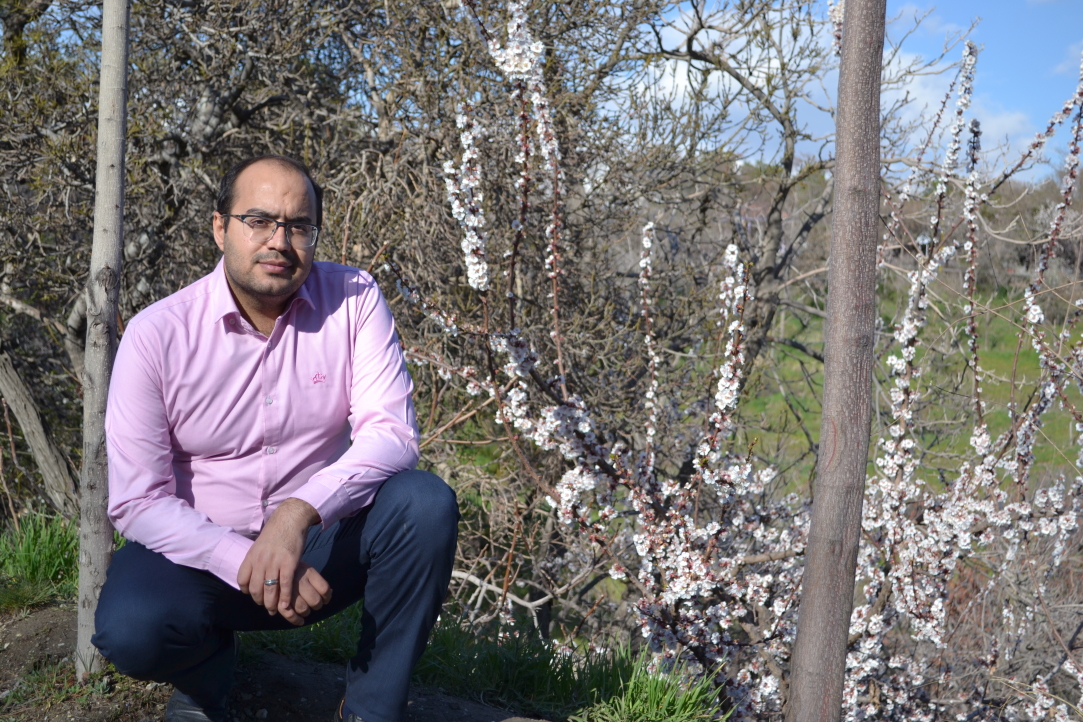"If you want to do something significant you should go through the theory of whatever you’re doing"

Hamidreza Behjoo graduated from the Statistical Learning Theory master’s programme with distinction. Currently, he is a PhD student in applied mathematics at the University of Arizona. We asked him about his experience of the master’s programme, the courses he found the most useful, and his impressions of Moscow.
I received my previous education in Iran, where the most talented students usually study electrical engineering because it provides more opportunities after graduation. I also worked in the area of signal processing. Then I moved to Moscow and enrolled in the Statistical Learning Theory master’s programme (now called Math of Machine Learning). It is a double degree programme by HSE University and Skoltech. We studied most of the theoretical stuff at HSE University and our practical work was in Skoltech.
As the name suggests, this programme is not about machine learning, it is about the mathematics behind it; and if you want to do something significant you should go through the theory of whatever you’re doing. For example, you can learn some particular aspects of computer science like software engineering and just write code; but if you go through mathematics you can make a huge impact on the whole area of machine learning. That's exactly why I chose this programme.
I first applied to Skoltech and they informed me that this was a double degree programme, so I needed to apply to HSE University as well. I checked the HSE University website and saw that there were good professors like Vladimir Spokoiny, who’s a great name in statistics, and decided to enrol.
Among the subjects I found really useful and interesting were algorithmic optimization and advanced statistical methods. I got familiar with the Russian school of optimization which is developed by Nesterov and Nemiroski. Prof Spokoiny is an expert in the area of non-parametric statistics whom I benefited a lot from his lectures.
During my studies in Moscow, I was involved in several research projects like the non-equilibrium Markov Chain Monte Carlo and stochastic optimization. Also, my thesis was on multiview learning for the analysis of biomedical signals. Usually, we have access to different kinds of information from a patient like heart rate, blood pressure, EEG, MRI, etc. In order to make a meaningful interpretation of all these data we need to combine them in a meaningful way, that’s where multiview learning comes into play and helps us to make the best decisions.
In my programme, HSE University gave me a dormitory and Skoltech gave me a stipend, so it was really good for me (laughs). HSE University’s advantage is its international network, connections with professors around the world who come to Moscow and teach unique high-level classes. As for possible improvements, I would suggest teaching more courses in English for international students because we always have to inquire whether a particular course is taught in Russian or English.
Now I’m going to study for a PhD in applied mathematics at the University of Arizona. I think that I got nominated for this programme primarily because of the Statistical Learning Theory programme. I applied to many universities and most of them praised my master’s degree. They were impressed by the structure of the programme, courses, skills we learned that are vital in today’s machine learning.
I come from a country where we do not have a lot of snow, but when I came to Moscow there was as much snow as possible. The most interesting, I think, in Moscow is my Russian classmates. I now have some friends in Moscow, they are really funny people and we had a good time together. They took me ice skating in winter, it was so much fun.
